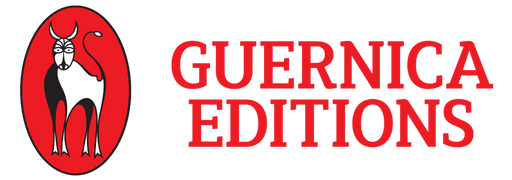Photograph by Hesther Ng
Hanna Komar is the first writer to take part in Guernica Editions and PEN International's Writers Residency supporting refugee writers and writers in exile. This is her first article written as part of the residency.
I am Hanna Komar, a Belarusian poet. I like introducing myself as a poet; Belarusians like to call themselves a nation of poets. I can’t remember when or how I first heard this idea, but it’s omnipresent; even Belarusians who haven’t read any poetry since they left school agree with it. And over the last few years, poetry has been in even greater demand among Belarusians.
Like many other Belarusian writers, Dmitry Strotsev, a poet and publisher, had to leave the country following the crackdown on 2020’s peaceful post-election protests, when people who expressed views that differed from those of the dictatorial regime began to be persecuted. While in exile, Dmitry founded a poetry publishing project called hochroth Minsk, affiliated with the German publisher hochroth Verlag. In February 2023, hochroth Minsk published three poetry collections: Самае трывожнае лета (Your Most Worrisome Summer) by Krystsina Banduryna, Я працягваю (I Go On) by Nasta Kudasava, and Тое, што сказалася вершам (What I’ve Said With A Poem) by Hanna Sieviaryniec.
In an interview with independent media outlet Novy Chas — one of the dozens of independent media outlets whose legal registration statuses were taken away by the Belarusian regime, and who now have to operate from abroad — Dmitry said that once the collections were announced, they received lots of orders. His German colleagues at hochroth Verlag were surprised that poetry was in such demand in Belarus. “In Belarus, poetry still has social value. In Germany, it hasn’t for a long time,” Dmitry’s colleagues remarked to him. Another Belarusian publisher, the London-based Skaryna Press, also noticed that at events they organise in cities with large populations of Belarusian immigrants, there is a craving for poetry; there, the press’ poetry books sell better than anything else.
In 2020, poetry rose up from schoolbooks and reached into the courtyards of Belarus’ cities and towns. It came even to people who only thought of poetry as classics; who had no idea that we have contemporary poets. Suddenly there was poetry that speaks the language of our wounds and traumas, of our worries and hopes, our dignity and love. There was poetry that feels like a friend — like a companion to whom you can tell your deepest experiences. How did this happen?
In the fall of 2020, as peaceful protests against rigged election and state violence were continuing in Belarus, neighbours who first met each other through political activities realised they wanted more from their organizing. They wanted to gather and celebrate being communities of like-minded people. It began with simple tea parties and developed into concerts and plays, into lectures and poetry readings in the courtyards of apartment buildings. I remember performing poetry at one of these events: I was reading poems about August and September 2020, and a few women were sitting in front of me crying. “Thank you, thank you,” they repeated, wiping tears from their eyes. I don’t know if I’d ever seen anyone cry over my poems before. I don’t know if there could be a moment more important than that, for a poet.
“Why is Belarus a nation of poets?” Krystsina Banduryna, a poet and journalist, asked another Belarusian poet, translator and essayist, Maryja Martysevich, in an interview. I think Maryja’s answer summarises it perfectly: “I think because all the attempts of Belarusians to write in any forms other than poetry, from the Belarusian perspective, have faced obstruction by bigger perspectives — Polish, Russian, and European in general. Poetic language is the last code that allows Belarusians to express themselves.”
Poetry has helped me express myself for twenty years, since I was thirteen — until it stopped. Poetry stopped coming to me as a response and as a resource. I seem to have lost this language, as if some form of aphasia has erased it, as if it hasn’t been there at all. Sometimes a line comes to me, two lines at maximum, and it feels like I’m making the first steps. What happened and what am I going to do about it? I’ll tell you soon, so stay with me.
Hanna Komar is a poet, translator, and writer. She has published three poetry collections: Страх вышыні (Fear of Heights) and Мы вернемся (We’ll Return) in Belarusian, as well as the bilingual collection Recycled. Her work has been translated into Polish, Ukrainian, Swedish, Norwegian, German, Czech, Lithuanian, Slovenian and Russian. She translates her own work into English. She is a member of PEN Belarus and an honourary member of English PEN, as well as a Freedom of Speech 2020 Prize laureate from the Norwegian Authors’ Union. She is interested in using poetry to support Belarusian women to share experiences of gender based violence and patriarchy.

